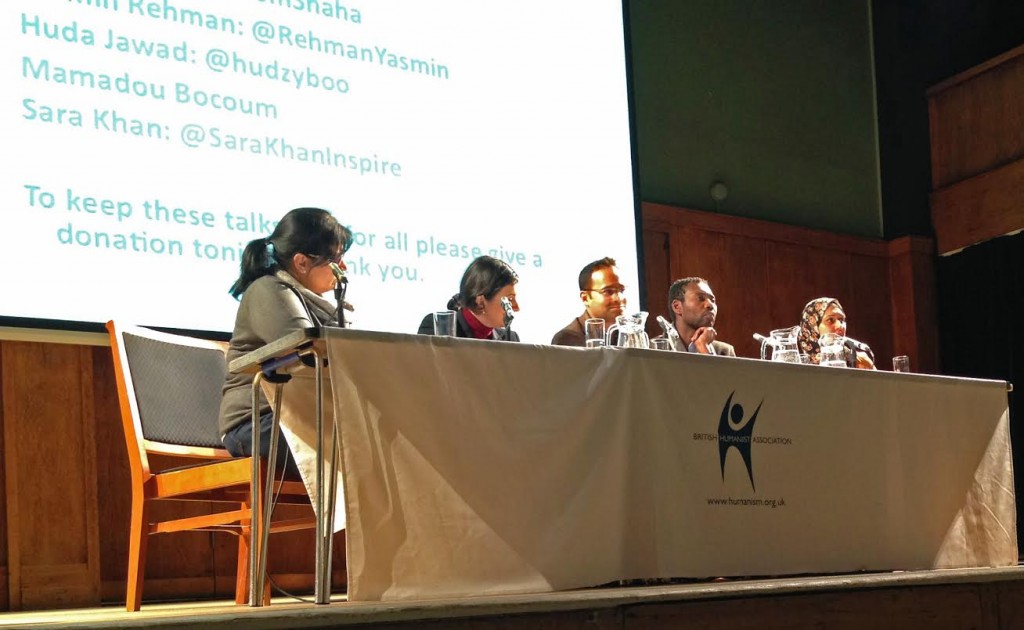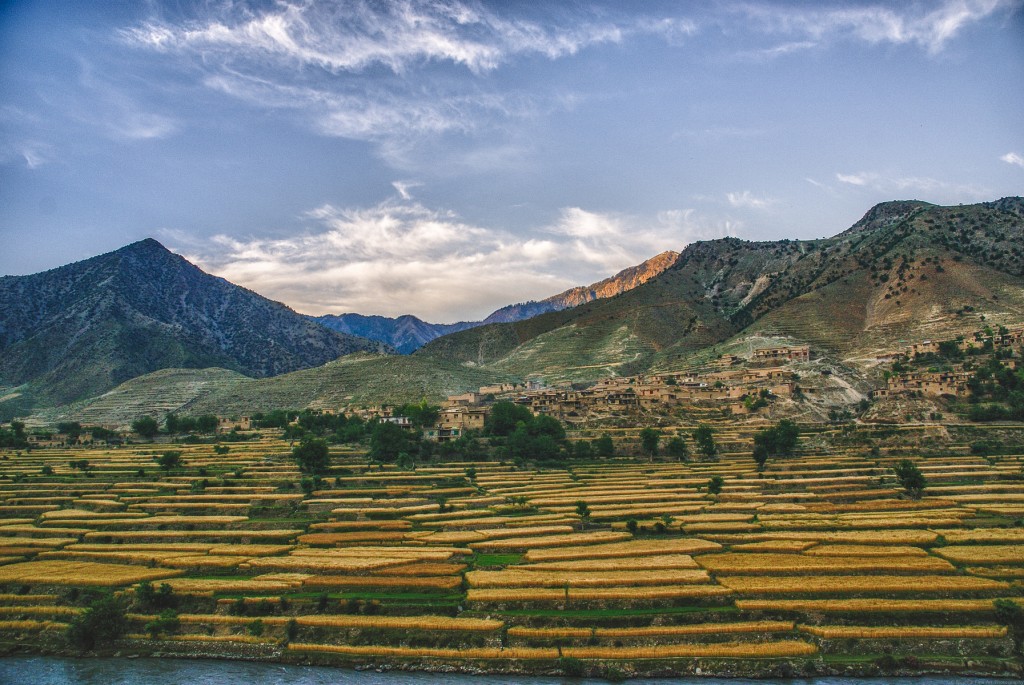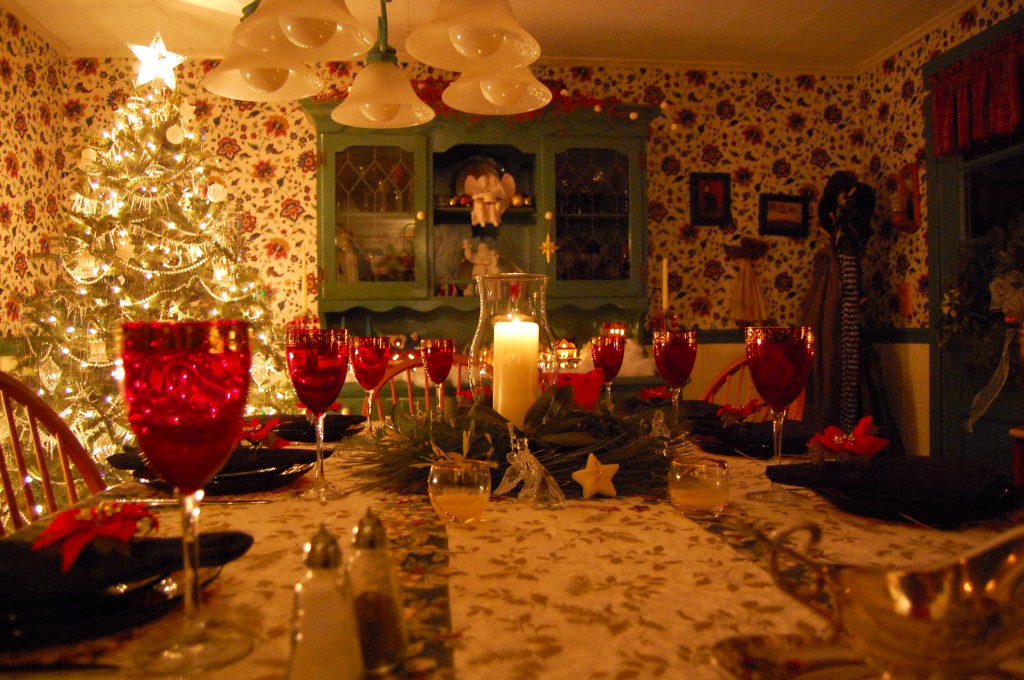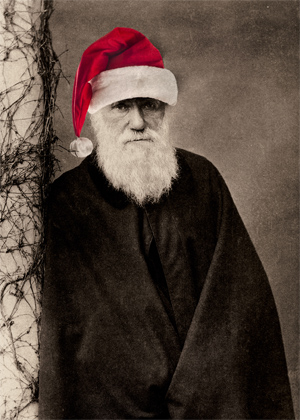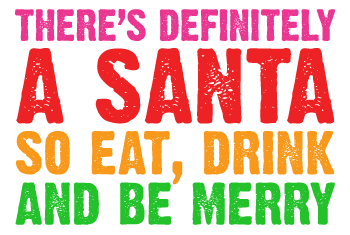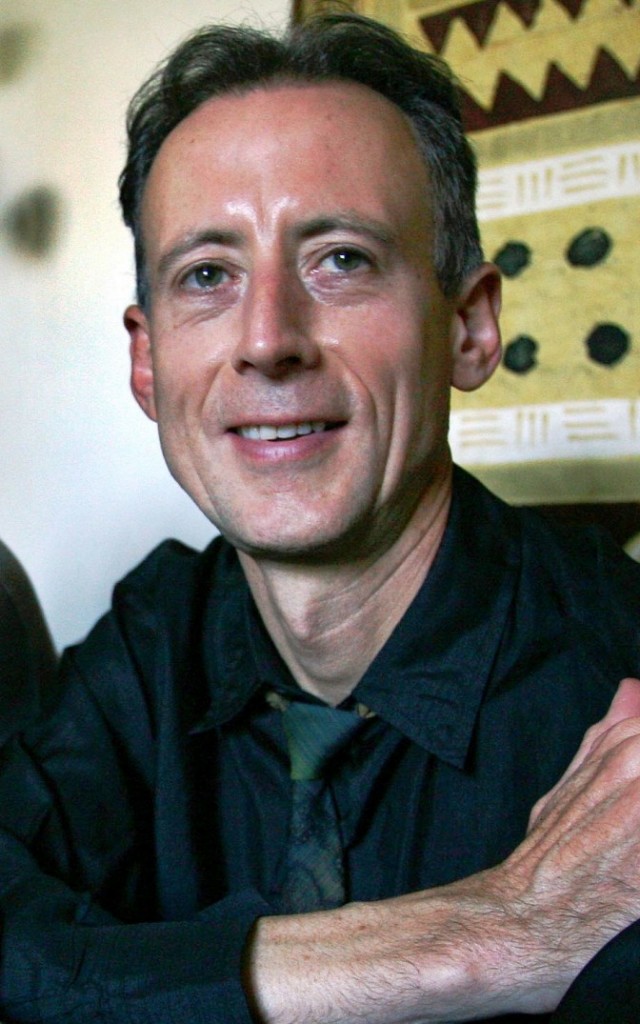According to the 2011 Census, one in eight Londoners identifies themselves as a Muslim. In November 2014, a group of us decided it was time to move beyond the black-and-white ‘isn’t Islam terrible’ rhetoric and start talking with, and listening to, fellow Londoners who are Muslim. The aim was not to debate whether Islamic beliefs were right or wrong, but to respect the fact that most Muslims will continue to see their faith as an element of their identity. We wanted to get behind the media stereotypes and start to understand what real Muslims think, and where the real differences and common ground lie. Above all, we wanted to start seeing Muslim Londoners as fellow human beings, and not as ‘The Other’. So we invited four of them to a dialogue at Conway Hall on 25 November 2014, chaired by Alom Shaha, author of The Young Atheist’s Handbook and an ex-Muslim from a Bangladeshi background.
Our guests were Mamadou Bocoum – Public Relations Officer for the Sharia Council; Huda Jawad – Advisor at the Centre for Academic Shi’a Studies and research Coordinator for Solace Women’s Aid; Sara Khan – Co-Founder and Director of the human rights charity Inspire, and Yasmin Rehman – from the Centre for Secular Space and researcher into polygamy and the law.
140 people turned up – mainly humanists but also a number of Muslims. The feedback afterwards was overwhelmingly positive. As one of the attendees said this was ‘a chance for humanists to hear a range of views from intelligent and non-stereotypical, politically-engaged Muslims, without anyone demanding that they justify their religious belief’. We see it as a first step.
This report ‘tells it as it was’ – barring a rearrangement of points into a logical order – without comment, reflecting our aim to improve understanding. You can hear the full audio recording here.
Muslim identity, racism, victimhood
Yasmin’s parents came to the UK in the 1950s and 1960s. Growing up in a small mining town in the North East meant facing routine racism and the threat of violence. On the day of her father’s funeral, someone posted a note through their door saying ‘That’s one less Paki to worry about.’ Then there was the Rushdie Affair, the point at which it felt that the Government started to consider ‘Muslims’ as a group that needed special attention. That was powerfully reinforced by the September 11 (‘9/11’) and July 7 (‘7/7’) terror attacks in New York and London. Unfortunately even now, when dealing with officials, Yasmin reports ’you get a seat if you say the right thing’. Faith leaders were only too happy to respond by providing a strengthened faith identity. From being a Punjabi Muslim, with more in common culturally with Hindu and Christian Punjabis than Muslims from other parts of the world, Yasmin found her Muslim identity promoted to the top of the list and with it, increased pressure on her generation to practice their faith and adopt its outward signs.
Racism then morphed into anti-Muslim prejudice and hatred. Yasmin’s son, then aged 18, was brutally assaulted on a London bus in the wake of the 7/7 attacks and has moved to the Far East. She fears he will never return home to the UK.
Huda was a child in a Sunni area of Saddam’s Iraq. She was taught to conceal her Shia identity in order to protect her family from persecution. When she came to the UK, she did not even identify herself primarily as a Muslim, and the Islam she heard about in school RE lessons seemed unrecognisable. But things changed after the Rushdie Affair ‘when the question became, ‘Are you British or are you Muslim?”, and so began a personal journey to explore her faith and its texts.
Alom too grew up in a UK in the 1970s and 1980s where racial prejudice was considered normal and unremarkable. He saw 9/11 as the turning point when his generation began to be pigeon-holed as ‘Muslim’, and racism evolved into anti-Muslim prejudice. In his experience as an ex-Muslim, sometimes people use their atheism to mask covert racism and anti-Muslim bigotry. And too often ‘terrorist’ is equated with ‘Muslim’, despite the data.
But the Muslim communities themselves also had to take some responsibility for the current ‘us and them’ position. Firstly, in Sara’s view, they had been let down by poor leadership, making them vulnerable to pressure from extremists. Frequently she had seen leaders unwilling to counter extremist on-line narratives, simply claiming ‘there’s no problem, it’s all to do with foreign policy’. Inadequate leadership was particularly serious when failing to confront gender issues: when police or Local Authorities approached mosques to discuss issues such as violence against women, they were often told there was no issue and found it impossible to talk directly to Muslim women. Mosques became ’gatekeepers, not gateways’.
Secondly, in Yasmin’s view, a sense of victimhood pervaded Muslim households, especially on the back of the Israel-Palestine conflict. Satellite TV channels were filled with reports of Sunni victimhood from Chechnya and other places across the world. Yet when she tried to challenge this outlook, she found herself accused of ‘Islamophobia’.
The panellists felt that the media gave an extremely misleading portrayal of British Muslims, which then formed the basis for the opinions of the wider population, which added to a ‘bunker’ mentality. The result, in Mamadou’s view, was that Islam was being hijacked by the hardliners. Sara gave the example of the BBC giving Anjem Choudary the key 8.10am interview slot on Radio 4’s Today programme after the Lee Rigby murder, despite his extreme views being detested by most British Muslims.
The rise of ISIS and of extremism in the UK
All the panellists were horrified by ISIS and what Sara referred to as their ‘takfiri’ form of Salafist-Jihadist Islam, in which anyone who does not share their extreme dogma is considered ’not a true Muslim’ and is therefore dispensable – a ’school of thought alien to most Muslims’. Sara pointed out that the Islamic State, in the sense that ISIS was pursuing it, was a modern idea. She saw it as part of the wider challenge of reconciling Islam with modernity.
Extremist ideas generally, and ISIS in particular, posed a serious challenge to Muslim parents in the UK. Young British Muslims who were already feeling alienated and angry were easy prey for jihadist propaganda. But the underlying causes of radicalisation are complex. Sara explained that the government’s ‘Prevent’ strategy had evolved considerably in recent years, and there was now a wealth of academic research available in this area. It showed no single cause or route, and no correlation with poverty or lack of education.
It was true that British Sikh and Hindu communities, which had also suffered from racism, did not suffer from extremism to the same degree as the Muslims communities, though Huda pointed out that every religion had the capacity for violence. She gave the example of Buddhist monks who persecuted Muslims in Burma. A number of factors had impacted the particular position of Muslims in the UK. Foreign policy was one. But it was also significant that, unlike some other immigrant communities, most British Muslims had their origins in relatively poor rural areas in the Indian sub-continent. Children of first generation immigrants often came from homes where they were told not to question their parents’ views and authority, while at school they were being taught that questioning and enquiry were a good thing.
At the same time, in addition to the influence on them of extremists in social media, Sara pointed to the millions of pounds that has been spent by Saudi Arabia on pushing Wahhabism, a hardline variety of Islam with a bigoted view of those who do not share it, and which takes no account of cultural background.
The pressure towards hardline thinking was therefore significant. And, as Huda said, ISIS were especially good at media management and recruitment, while at the same time in Britain ‘my sons are being told they are the enemy and potential terrorists. How do I prevent them from walking into the arms of ISIS?’
Extremism affected both Muslims and non-Muslims: a Pakistani police colleague of Yasmin’s had been killed by a suicide bomber when he shook his hand in a mosque. In Belgium a Shia Imam had been killed by Sunni extremists, and in the Edgware Road in London, a mob of Anjem Choudary followers had attacked a man simply for being a Shia. Meanwhile, the Far Right was exploiting ISIS and other Islamist extremists to stoke anti-Muslim hatred. Huda felt the pressure acutely: ’This is home. But I’m increasingly feeling there will be a time when I need to find the bags that I’ve packed, but I don’t know where I’m going. I’m not Muslim enough, not secular enough, not Shia enough. How many more headlines do I need to read in the Daily Mail before it’s time to go?’
Yasmin felt that women could play a vital role in combating the trend, citing the example of Northern Ireland, where women from both sides who had lost children in the conflict had come together.
There was agreement that it was better for Anjem Choudary and other hardliners’ activities to be visible, rather than driven underground, but disagreement over whether there was any benefit in attempting dialogue with them.
‘We have a problem with the text’
Mamadou knows the Qu’ran intimately – he memorised the whole thing when he was fourteen and can quote chapter and verse. But he thinks ’we have a problem with the text’. In his view the main issue is people taking verses out of context and interpreting them literally. He agreed with the Christian theologian who said ‘Any text without context is a pretext’, and pointed out that, if he were following the Qu’ran literally ‘I would not be sitting here’, because humanists are not Muslims, and there is a verse which says non-Muslims are enemies.
But the Qu’ran itself asked readers to contemplate and think for themselves about its meaning, so that ‘the understanding of the text is greater than the divinity of the text itself’. He called for Muslims to be brave enough to question the meaning of the text and to understand and apply Kant’s approach to hermeneutics in order to move beyond literalism.
Sara and Huda shared this interpretive thinking. ‘The text will be as moral as the reader’ in Sara’s view. Like Mamadou, Huda saw the text as ‘all about enquiry’, with verses requiring Muslims to reflect, ponder and understand too often overlooked in favour of simple ’dos and don’ts’. It concerned her that many Muslims forget the blossoming of science and philosophy which took place in Muslim Spain, an empire where rational enquiry was valued and which lasted for 300 years.
In Mamadou’s view, Muslims could learn from humanists to ‘put human beings at the centre of what we do.’ ‘I have a human being in front of me, not God,’ she conceded.
Multiple Islams
On the panel were three Sunnis – if we include Yasmin, who preferred not to discuss the details of her beliefs – and one Shia Muslim.
Huda explained the split between Sunni and Shia (literally ‘the followers of Ali’) as originally a political disagreement about the leadership of Islam after Mohammed’s death, with the Sunnis backing the leader chosen by his followers, and the Shia believing that it should be his descendants, starting with Ali, cousin and son-in-law. Despite agreement over the basic tenets of Islam and the Qu’ran, over time that had developed into a religious, cultural and political difference to the extent that the Sunni-Shia schism is one of the main underlying factors in the current wars in the Middle East. Conservative Sunni clerics do not consider Shias true Muslims. Huda sees ISIS as an unholy alliance between jihadis and Baathists formally loyal to Saddam Hussein who consider Shias the ‘number one enemy’, echoing Saddam’s view that they are ‘worse than Jews, worse than flies’.
She saw massive diversity within British Islam, with no single identity. Instead she regarded her faith as a framework for people to find their own path. Her mother was a science teacher and her family includes converts, secularists. Her personal view was that ‘Islam is all about rationality – we are told to forget tradition’. Unlike Yasmin and Sara, Huda wears a hijab, not because it is a religious requirement but because she has worn it for so long it is part of her personal identity.
Mamadou was born and brought up in Senegal. Among his identities was Sunni Islam with an African flavour which he continues to develop. Arriving in the UK, he found an alien ‘chicken tikka masala Islam’ in which the culture and practices of rural villages of the Indian sub-continent dominated. He argued for the development of a British ’fish and chips’ Islam reflecting both the diversity of the Muslim communities and British values and culture. As he pointed out ‘You cannot have this platform in the Middle East, or in the sub-continent. This is “fish and chips Islam”’.
Feminism and women’s rights
Sara identifies herself as a ‘Muslim feminist’, a term that some atheists, and some Muslims, tell her is an oxymoron. For her, ‘my faith… has given me a notion of equality, freedom of belief’ and it was her reading of the Qu’ran that inspired her to fight for justice, regardless of a personal cost which has included abuse and death threats. Attacks have come both from jihadists and, ironically, from their most virulent critics. Rod Liddle, for example, referred to her in the The Spectator as a ‘pseudo-apologist for the jihadis’ because she challenged media generalisations about British Muslims.
In her view, many Muslims do not know their own history. Islam promoted early ideas of women’s rights in seventh century Arabia, which included numerous social, political and economic rights. She recommended Lenn Goodman’s book Islamic Humanism. Unfortunately, the faith has been largely developed by men opposed to challenge on the grounds of gender equality. Ultra conservatives are trying to extend this thinking, for instance, by introducing gender segregation into British universities and denouncing those who oppose them as ‘non-Muslims’, echoing ISIS. Globally, extremist Muslims are targeting Muslim feminists, as in the case of the Libyan activist who was recently murdered.
But that was not the only source of opposition to progress. As Huda said, moderate Muslim feminists in the West find themselves in a triple bind: they have the general challenges associated with being western Muslims; their co-religionists use ‘feminist’ as a form of insult; and their co-feminists attack them either for being too religious or not religious enough. Sara has even been accused by white, non-Muslim feminists of being an ‘Islamophobe’.
LGBT rights
A questioner quoted a Gallup survey of 500 British Muslims in which none had considered homosexuality acceptable. How can gay people live freely alongside Muslims, for example, in East London?
Huda’s view was that ‘God is the only judge’. But she was not surprised by the data because people would tend to answer this question the way they think was expected. In fact Muslims in her community talk about the issue in private all the time, but consider it taboo to discuss it publicly.
But there was no question that the current view across Islam is unfavourable towards homosexuality. A particular reason for resistance to change was that, for a community that feels under siege, the traditional teaching is seen as a bastion against ‘the West’.
Mamadou compared the development of Christianity and Judaism with Islam, which he saw as still a relatively young religion that needed time to reform.
But things may be slowly shifting: there is an organisation called Imaan, set up to support LGBT Muslim people – it held a conference earlier this year; TellMAMA, which tracks anti-Muslim attacks in the UK, had recently recruited Peter Tatchell on to its board; Shereen El Feki’s book ‘Sex and the Citadel’ covered the reality of gay life in Arab society; and the Safra Project, which supports Muslim LBT women. Mamadou had worked with a gay imam in Washington.
On the other hand, Safra had received threats for campaigning against forced marriage, and the liberal Muslim Institute had come under attack for a discussion on gay rights.
Yasmin ‘called out’ the East London Mosque, which she said had been taken over by Islamists who were strongly homophobic. And Sara demanded zero tolerance of homophobia, pointing out that Muslims cannot complain about Islamophobia without at the same time challenging homophobia.
Freedom of speech
In response to a question about threats of violence directed by Islamists at people deemed to be ‘insulting Islam’, Huda said that they must always be condemned, provided it was done even-handedly. ‘God and the Prophet can take care of themselves’ and she thought most Muslims don’t take violent offence to challenges. But she wondered whether sometimes the target is not so much faith but a particular community. For example, she wondered what the headlines would have looked like if Harold Shipman had been Muslim rather than Jewish.
Faith schools
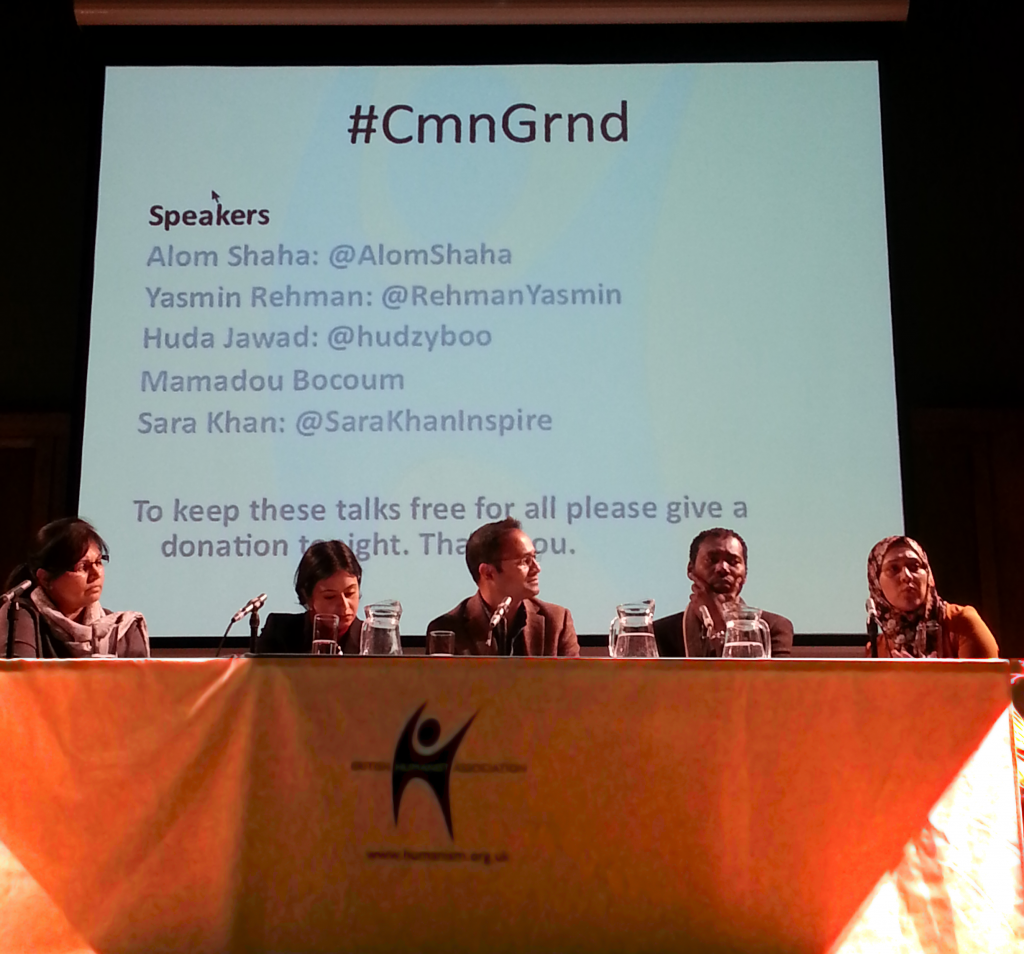
The question of whether the state should be paying for sectarian religious schools clearly divided the panel
There was a clear difference in view among the speakers on faith schools. They did not all support Alom’s call to back the British Humanist Association’s position opposing ‘faith’ schools as sectarian, divisive, and in a majority of cases discriminatory.
Huda said she did not send her children to a ‘faith’ school, but understood the need for a safe space where parents could ensure children know enough about their religious and cultural backgrounds to defend themselves against ISIS propaganda.
Mamadou thought that some faith schools were doing a ‘wonderful job’ and they should not be closed down. But support for them also meant being ready to criticise when they got it wrong.
Yasmin had herself attended a convent and considered separating children on the basis of faith a form of apartheid. And she had been very disturbed to come across a junior school where young girls were wearing hijabs. She felt strongly that the state should not fund faith schools, which only increased division on the basis of religion and class, and. She wanted to see global religions taught as an academic subject, with less ‘Eurocentricity’.
Sara had two daughters at a local community school. She had no confidence in what a Muslim faith school or a madrassa would teach them, and preferred to do it herself. She recognised that there are some good faith schools and felt parental choice should be respected, but good governance was essential.
Sharia and apostasy
Although Mamadou is the Public Relations Officer for The Muslim Law (Sharia) Council UK, there were only a couple of references to Sharia during the meeting. The first was from Yasmin, who pointed out that there is not just one Sharia law, with four distinct schools within Sunni Islam. She was ‘really troubled by government support for sharia councils for dispute resolution’, and wanted ‘all women to have equal access before the law’. She wondered why it was that only in the past 20 years have British Muslim women who want a divorce been expected to go to a sharia court: did that mean all the previous divorces were invalid? Huda later pointed out that in fact there were five schools of Sharia Law, four Sunni plus one Shia.
Surprisingly, the issue of apostasy did not come up in the questions, although the speakers’ rejection of Qu’aranic literalism suggested what their views might be.
Were speakers representative of the wider Muslim community?
A questioner cited opinion polling suggesting the speakers’ liberal views were not representative of the general views of British Muslims.
Yasmin was critical of much of the polling data, which she did not recognise on the basis of the many people she knew. It was often unclear who actually got to fill in the questionnaire. Sara pointed out that over 80% of British Muslims were very patriotic, and even the extremists seemed to prefer the benefits and freedoms of living in the west.
Messages to humanists
During the discussion there were a few points directed at humanists hosting the event:
- Sara ‘We value your support and assistance in combating extremism’.
- Huda: ‘It’s better to ask and enquire than hold back for fear of causing offence’.
- Mamadou: It’s important to avoid ‘the arrogance of exclusiveness – what I believe is right, what others believe is wrong’. He called for the non-religious to be ‘modest enough to accept the religious person’.
- Huda: ‘When I’m reaching out to humanists and secularists, I do so in the hope that they will accept me without trying to demonise my religious beliefs or identity’ or ignore me because ‘you’re not rich enough or educated enough.’
I for one would like to think that these misconceptions about humanists were greatly clarified by the event.
All four speakers welcomed the opportunity for the dialogue and wanted to see it continued.
The event was organised by local humanist groups in London and Conway Hall Ethical Society. The core team was Helen Palmer (Chair, Central London Humanists), Jeremy Rodell (Chair, South West London Humanists), and Rory Fenton (Dialogue Officer, British Humanist Association).
